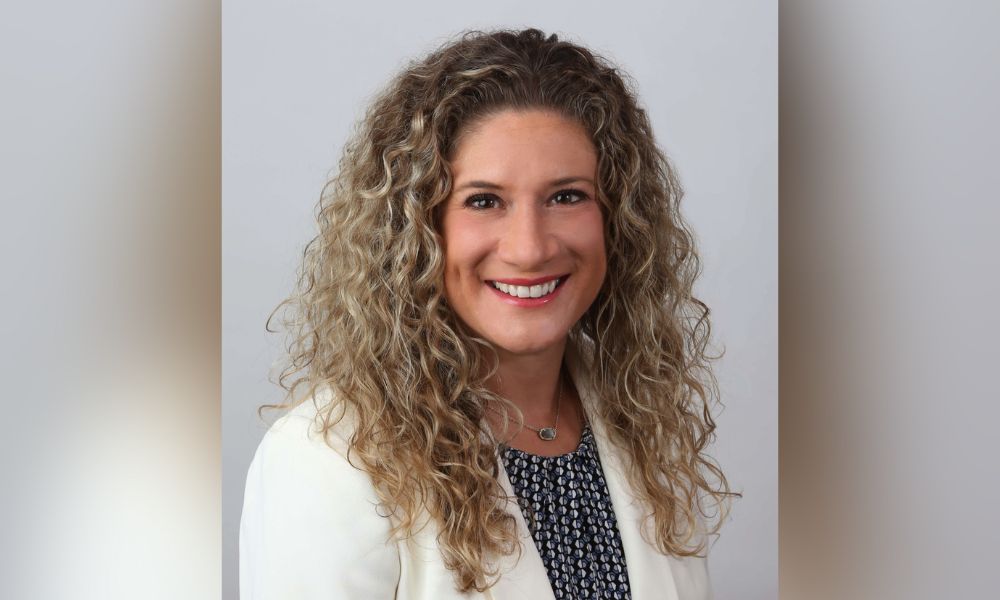Why insurance is the ‘backbone’ of innovation

Why insurance is the ‘backbone’ of innovation | Insurance Business America
Technology
Why insurance is the ‘backbone’ of innovation
Progress often requires failure
Technology
By
Nicole Panteloucos
To keep up with emerging risks, creating innovative insurance solutions is pivotal.
Senior vice president, head of innovation, Americas at AXA XL, Rose Hall (pictured) spoke with Insurance Business at the recent RISKWORLD conference in San Diego to explain how her firm is doing it.
Dedicated to exploring the next generation of technologies that could aid insurance companies and insureds in risk mitigation, Hall shared insights into emerging risk trends and emphasized the importance of the insurance industry in driving innovation forward.
Innovative ecosystems
As the co-founder of AXA XL Ecosystem, a list of preferred partners in the firm’s network that use technology to help clients reduce risk and grow their businesses, Hall is committed to discovering innovative approaches to integrate technology into insurance solutions.
Speaking on the initiative, Hall said: “We have a preferred partnership, we call our Ecosystem, where we vet hundreds of different technologies and partner with 35 at any given time that we think are best at helping clients manage their risk.”
Hall highlighted that some of the most popular categories of risk prevention technology include water mitigation, workers’ wearables, computer vison hazard detection and telematics.
Providing an example, Hall said insurtech could include portable devices worn by factory workers to alert them about proper lifting techniques, helping them avoid injuries.
Emerging risk factors
AXA XL’s head of innovation also pointed out that predicting risk factors for the next decade will pose a significant challenge.
Hall cautioned against using the past as a reliable indicator for the future.
“If anybody thinks that the last 10 years are indicative of what the next 10 years are going to look like, we have another thing coming,” she said. “The climate is not going to look the same as it did the last 10 years. Everything we thought was predictable, is now becoming less predictable.”
In addition to changing weather patterns, Hall noted that Per- and Polyfluorinated Substances (PFAS) are also a threat.
The synthetic chemicals are extensively used in consumer products like non-stick cookware, water-repellent clothing, and stain-resistant fabrics.
While Hall acknowledged that these chemicals have been ubiquitous for years, they are harmful not only to humans but also to the environment.
In addressing emerging risk factors like PFAS, Hall underscored the need for insurers to have multiple methods of managing risk.
“How do we figure out how to mitigate risk?” she asked. “You’ve got to have more than just an insurance solution. You’ve got to have multiple ways of managing risk and that’s part of what our work is about at the innovation group.”
Combining tech with insurance
Having emphasized the need for businesses to incorporate tech into their risk mitigation strategies, Hall noted that combining technology with insurance coverage often streamlines the insuring process, and can provide incentives for businesses such as preferred terms and discounts.
“Risk engineering used to be about what are the processes and procedures and operations you use to manage your risk,” said Hall.
“Now it’s that, plus, what technologies are you using to manage that risk?”
Reflecting on the most rewarding aspect of her role, Hall expressed her passion for fostering innovation and pointed out that many of AXA XL’s preferred partnerships might not have existed without the support of insurance.
“Insurance is a financial safety net that, I believe, allows for innovation. All these companies that are doing fantastically new things wouldn’t do them if their balance sheets weren’t productive,” shared Hall.
“I think that the insurance industry encourages societal innovation by providing that backbone. You’re going to have to fail before you start making progress.”
Related Stories
Keep up with the latest news and events
Join our mailing list, it’s free!






